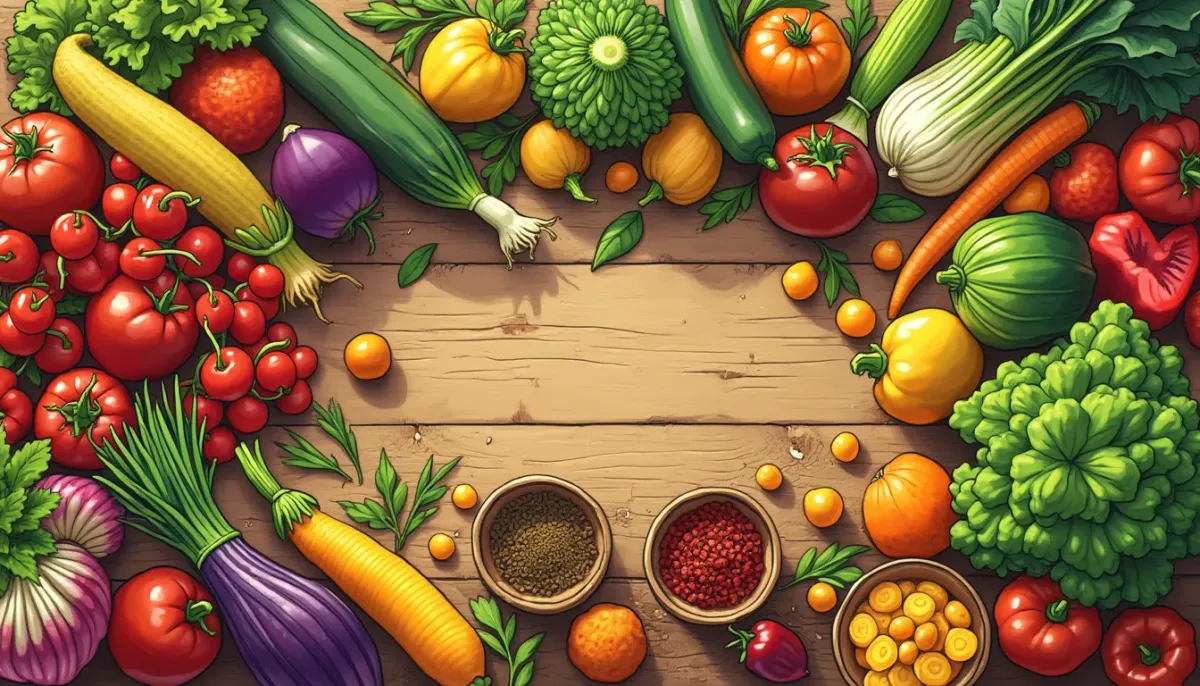The Vegan Journey: Embracing Life, Health, and Environmental Sustainability
Exploring veganism's role in promoting health, environmental sustainability, and ethical living through plant-based dietary choices.

Introduction
“To change the world, start with one step. However small, the first step is hardest of all.” — Dave Matthews
In recent years, the vegan lifestyle has transformed from a niche dietary choice to a mainstream movement, captivating those seeking improved health, environmental sustainability, and ethical living. Adopting a vegan diet—opting for plant-based foods and eliminating animal products—not only promises numerous personal health benefits but also plays a significant role in safeguarding our planet and its resources. This journal delves into the essence of veganism, illustrating the profound impact of dietary choices on our lives and the environment.
The Essence of Veganism
Veganism can be seen as more than just a diet; it is a holistic lifestyle choice encompassing a compassionate, health-conscious, and environmentally aware way of living. At its core, veganism rejects animal exploitation and seeks to minimize harm to sentient beings, acknowledging that our choices affect countless lives.
Health Benefits
Opting for a vegan diet has been associated with countless health advantages. Below are some of the noteworthy perks:
- Reduced Risk of Chronic Diseases: Research indicates that a plant-based diet may lower the risk of heart disease, high blood pressure, type 2 diabetes, and certain cancers. Studies suggest that consuming whole, plant-based foods rich in fiber, vitamins, and antioxidants helps decrease inflammation and improve health markers.
- Improved Digestive Health: A vegan diet typically includes more fiber—an essential nutrient for maintaining a healthy digestive system—than traditional diets. The increase in fiber consumption aids digestion, prevents constipation, and supports a balanced gut biome.
- Weight Management: Vegans often find it easier to maintain or lose weight compared to omnivores. Plant-based foods are generally lower in calories and fat, contributing to a leaner physique and reduced risk of obesity without the need for stringent calorie counting.
- Enhanced Energy Levels: Consuming nutrient-dense, plant-based foods provides steady, long-lasting energy, reducing the likelihood of energy crashes often associated with refined and processed foods.
Environmental Benefits
"The planet will continue to accept our decisions with or without us." — Unknown
The impact of dietary choices extends far beyond personal health, profoundly affecting the environment. Consider the following environmental benefits associated with a vegan lifestyle:
- Reduced Greenhouse Gas Emissions: Livestock production is one of the leading contributors to greenhouse gas emissions. By reducing animal consumption, individuals can significantly decrease their carbon footprint.
- Conservation of Water Resources: Raising animals for food requires immense amounts of water—far more than producing plant-based foods. Adopting a vegan diet can potentially save thousands of gallons of water each year.
- Land Use Efficiency: Plant-based production is more efficient in terms of land use. Lesser land is required to produce the same amount of protein from plants than from animals, ultimately leading to reduced deforestation and land degradation.
- Preservation of Biodiversity: By choosing plant-based foods, individuals can help preserve natural habitats and biodiversity often destroyed by industrial livestock farming.
Embracing the Vegan Lifestyle
Transitioning to a vegan diet might seem daunting initially; however, a gradual approach can ease the journey for beginners. Here are some practical tips for those considering this transformative lifestyle:
Start Slow
- Begin with small changes, such as incorporating more fruits and vegetables into your diet.
- Slowly eliminate animal products, starting with meat and progressing to dairy and eggs.
Experiment with Plant-Based Proteins
- Explore diverse plant protein sources, such as lentils, beans, chickpeas, and tofu, to ensure adequate protein intake.
- Quinoa, chia seeds, and edamame are rich in plant-based proteins that can serve as substitutes in conventional dishes.
Educate Yourself
- Learn about nutrient-rich plant foods and how to address common nutritional concerns (e.g., vitamin B12, iron, and omega-3 fatty acids).
- Read books or follow reputable online resources to stay informed.
Discover Vegan Alternatives
- Explore vegan versions of your favorite non-vegan foods, from cheese and milk to plant-based burgers and ice cream.
- Homemade alternatives can also be satisfying and rewarding to prepare.
Join a Community
- Connect with like-minded individuals, whether online or locally, who can support, inspire, and guide you on your vegan journey.
- Participate in social gatherings, potlucks, and local vegan events to nurture connections.
Common Myths and Misconceptions
While veganism is steadily gaining popularity, misconceptions persist. Addressing these myths is crucial for those considering a plant-based lifestyle:
- Lack of Protein in Vegan Diets: Contrary to misconceptions, plants provide ample protein options. Incorporating a variety of plant-based foods ensures adequate, balanced protein intake.
- Inconvenience of Vegan Diets: While initial changes may require effort, planning becomes second nature with time. The availability of vegan options in grocery stores and restaurants continues to expand.
- Nutrient Deficiency: A well-planned vegan diet meets nutritional needs. Nutrient-rich foods and supplements (where necessary) ensure a balanced diet.
- Expense: Vegan diets can be affordable by focusing on whole, unprocessed foods such as grains, legumes, and seasonal produce. Avoiding processed vegan substitutes can also help manage costs.
Conclusion
Veganism is a profound journey that transcends mere dietary choices, offering a path toward personal health, environmental stewardship, and ethical responsibility. By embracing the principles of plant-based living, individuals can contribute to a more sustainable, compassionate world while reaping the myriad health benefits. This transformative lifestyle demonstrates that our choices—no matter how small—hold the potential to effect real change.
"A vegan lifestyle is the ultimate affirmation of compassion, health, and environmental integrity." — *Unknown*
The path to embracing veganism is unique to each person, but its impact reverberates through our communities and our planet. As individuals strive for a healthier, more compassionate future, the ripple effects of their choices inspire others to consider the possibilities of a world rooted in empathy and sustainability.
Additional Resources
- Documentary: Forks Over Knives explores how a plant-based diet can improve health and well-being.
- Books: How Not to Die by Dr. Michael Greger provides scientific insights into the benefits of plant-based living.
- Podcasts: Main Street Vegan discusses vegan lifestyles and philosophies through engaging interviews and stories.
By exploring, educating, and sharing their experiences, individuals can embrace the vegan journey and inspire others to seek a balanced and thoughtful approach to life.
Midjourney prompt for the cover image: A vibrant array of fresh, colorful vegetables and fruits arranged artistically on a wooden table, emphasizing abundance and variety. The setting is a sunny kitchen with rustic elements, captured from an overhead angle to highlight the intricate details of the produce. Unique details include scattered herbs and spices in small bowls, suggesting flavor and culinary creativity. The style is Sketch Cartoon, exuding a warm, inviting mood that conveys the freshness and vitality of a plant-based diet.
